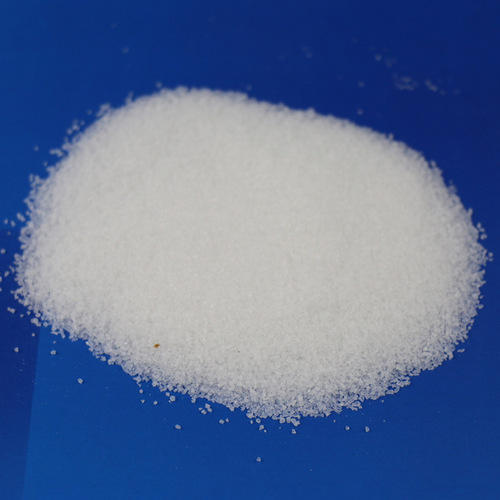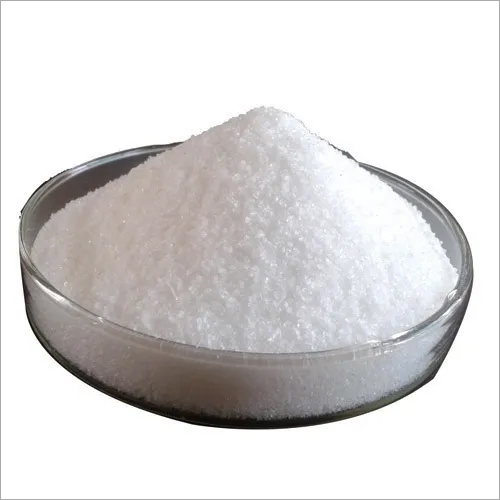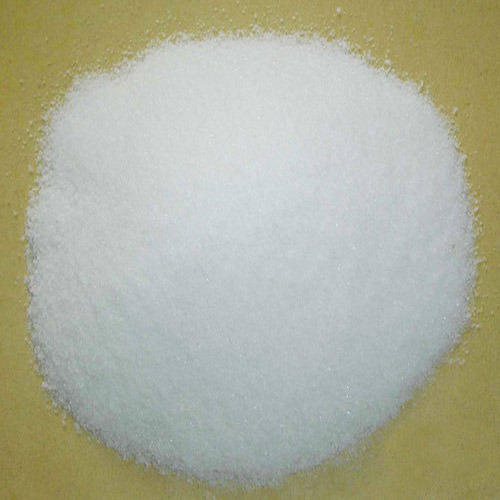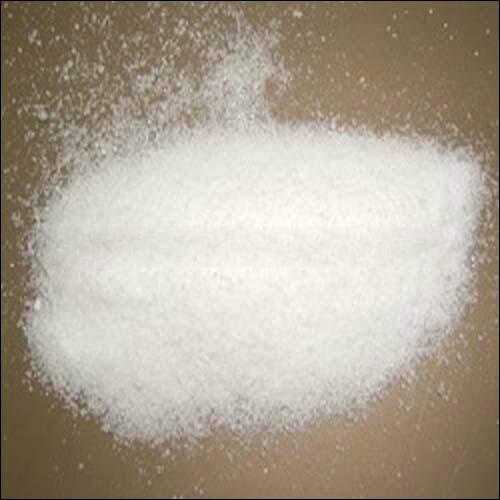Polyelectrolyte Cationic Powder
Price 240 INR/ Kilograms
Polyelectrolyte Cationic Powder Specification
- Molecular Formula
- (C3H5NO)n
- Boiling point
- 100%
- Form
- Powder
- Smell
- Other
- Purity
- 99%
- Solubility
- water soluble
- Ph Level
- 6.7
- Melting Point
- 154 degree
- Storage
- Room Temperature
- Taste
- Sour
- Other Names
- Polyelectrolyte , Polyelectrolytes powder, Polyelectrolytes chemical, polyelectrolytes chemical powder
- Classification
- Other
- Chemical Name
- Polyelectrolyte Cationic
- CAS No
- 203-750-9
- Grade
- Industrial Grade
- Standard
- Industrial Standard
- Usage
- To treat waste water
- Main Material
- Polyacrylamide
Polyelectrolyte Cationic Powder Trade Information
- Minimum Order Quantity
- 100 Kilograms
- FOB Port
- GUJARAT
- Payment Terms
- Cash in Advance (CID), Cheque, Letter of Credit (L/C)
- Supply Ability
- 1000 Kilograms Per Day
- Delivery Time
- 2 Days
- Sample Available
- Yes
- Sample Policy
- Free samples are available
- Packaging Details
- 25 Kg HDPE Bag
- Main Export Market(s)
- Middle East, Asia, Australia, North America, Eastern Europe, Africa, South America, Western Europe, Central America
- Main Domestic Market
- Dadra and Nagar Haveli, Chandigarh, Himachal Pradesh, Haryana, Kerala, Arunachal Pradesh, Bihar, Jammu and Kashmir, Jharkhand, Andaman and Nicobar Islands, Andhra Pradesh, Mizoram, Punjab, Uttar Pradesh, Madhya Pradesh, Maharashtra, Meghalaya, Manipur, Pondicherry, Delhi, Goa, Karnataka, Telangana, Rajasthan, Sikkim, Tamil Nadu, Tripura, West Bengal, Nagaland, Uttarakhand, Daman and Diu, Lakshadweep, South India, East India, West India, Assam, Gujarat, North India, Central India, Odisha, Chhattisgarh, All India
- Certifications
- ISO 9001 : 2015 certified and Msme Certified
About Polyelectrolyte Cationic Powder
Polyelectrolyte Cationic Powder refers to a type of polyelectrolyte that carries a positively charged ion. These water-soluble polymers are commonly used in various industrial applications such as water treatment, paper and pulp, and textile industries to aid in flocculation, coagulation, and filtration processes. The positively charged ions in polyelectrolyte cationic can attach to negatively charged particles in a liquid, such as dirt or other impurities, forming a floc or precipitate that can be easily removed by filtration or sedimentation. This helps to clarify the liquid and remove impurities. Polyelectrolyte cationic is also used in the food industry as a thickener and stabilizer. Proper handling and usage guidelines should be followed to avoid potential health hazards associated with polyelectrolyte cationic.
FAQs of Polyelectrolyte Cationic Powder:
Q: What is Polyelectrolyte Cationic Powder?
A: Polyelectrolyte Cationic Powder is a type of water-soluble polymer that carries a positively charged ion. It is commonly used in various industries such as water treatment, paper and pulp, and textile to aid in flocculation, coagulation, and filtration processes.
Q: How does Polyelectrolyte Cationic Powder work?
A: Polyelectrolyte Cationic Powder works by attaching to negatively charged particles in a liquid, such as dirt or other impurities, forming a floc or precipitate that can be easily removed by filtration or sedimentation. It also helps to stabilize suspended particles, preventing them from re-aggregating.
Q: What are the uses of Polyelectrolyte Cationic Powder?
A: Polyelectrolyte Cationic Powder is commonly used in water treatment as a flocculant and coagulant, in the paper and pulp industry as a retention aid, and in the textile industry as a dye and pigment fixative. It is also used in the food industry as a thickener and stabilizer.
Q: Is Polyelectrolyte Cationic Powder safe for use?
A: Polyelectrolyte Cationic Powder is generally considered safe for use in the quantities typically used in various industries. However, it is important to follow proper handling and usage guidelines to avoid potential health hazards.
Q: What are the potential health hazards of Polyelectrolyte Cationic Powder?
A: Polyelectrolyte Cationic Powder can cause skin and eye irritation, and inhalation of the powder may cause respiratory irritation. Ingestion of large amounts can cause gastrointestinal distress.
Q: How is Polyelectrolyte Cationic Powder stored?
A: Polyelectrolyte Cationic Powder should be stored in a cool, dry place away from heat, moisture, and incompatible substances. It should be kept in a tightly closed container and handled with care.
Q: Is Polyelectrolyte Cationic Powder biodegradable?
A: Polyelectrolyte Cationic Powder is not easily biodegradable, and its persistence in the environment can lead to water pollution. Efforts are being made to develop more environmentally friendly alternatives.
Q: Can Polyelectrolyte Cationic Powder be recycled?
A: Polyelectrolyte Cationic Powder can be recycled in certain industries such as paper and pulp, where it can be reused as a retention aid. However, recycling methods vary depending on the industry and application.
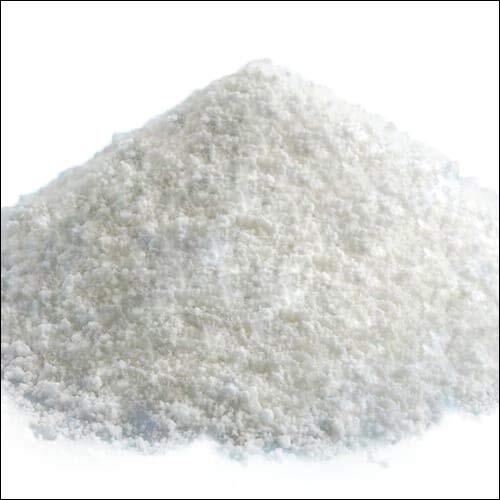

Price:
- 50
- 100
- 200
- 250
- 500
- 1000+
More Products in Polyelectrolyte Chemicals Category
Polyelectrolyte Chemical
Price 150.0 INR / Kilograms
Minimum Order Quantity : 25
Grade : Industrial Grade
Solubility : WATER SOLUBLE
Application : Water Treatment, Paints, Printing Industry, Oil Industry, Industrial, food, Soaps & Detergents, Toothpastes, Textile Industry, medicine, Plastic, Rubber, Pharmaceutical
Usage : Waste water treatment plant to remove COD / BOD
Cationic Polyelectrolyte Powder
Price 240 INR / Kilograms
Minimum Order Quantity : 100 Kilograms
Grade : Industrial Grade
Solubility : water soluble
Application : Paper, Industrial, Plastic, Rubber, Water Treatment
Usage : To Clean waste water
Polyelectrolyte Powder
Price 140 INR / Kilograms
Minimum Order Quantity : 25 Kilograms
Grade : Other
Solubility : Water Soluble
Application : Metal, medicine, Organic Synthesis, Paints, Explosive, Industrial, Nuclear, Paper, Plastic, Fertilizer, Pharmaceutical, Textile Industry, Other, Water Treatment, Lubricants, Printing Industry, Toothpastes, Rubber, Oil Industry
Usage : For cleaning water in tretment plants
Polyelectrolyte Flocculant Chemical
Price 140 INR / Kilograms
Minimum Order Quantity : 1 Kilograms
Grade : Industrial Grade
Solubility : water soluble
Application : Paper, Oil Industry, Industrial, Soaps & Detergents, Toothpastes, Textile Industry, medicine, Plastic, Rubber, Pharmaceutical, Water Treatment, Paints, Printing Industry, Lubricants, Metal
Usage : To clean waste water


 Send Inquiry
Send Inquiry
